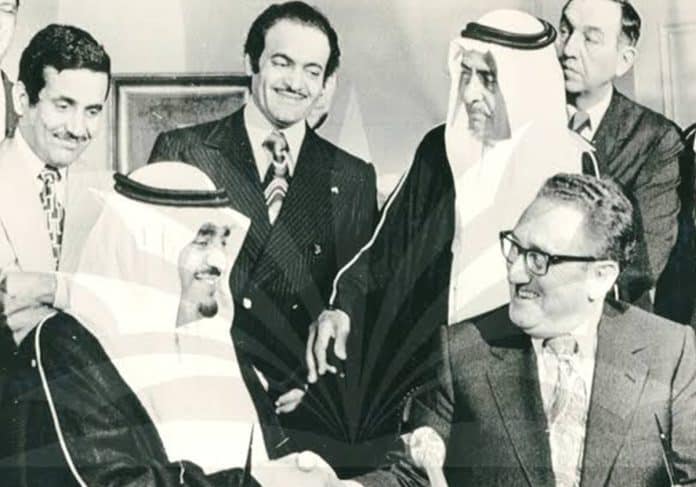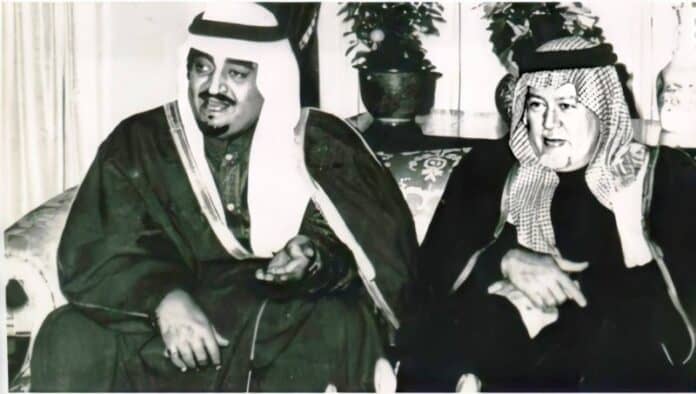King Faisal’s Betrayal: Echoes of Caesar’s Last Words

Watan – In the heart of ancient Rome, as the foundations of the mighty Roman Empire trembled, Emperor Julius Caesar faced a brutal betrayal. Ambushed in the Senate, he was met with a flurry of knives. Desperately seeking refuge in the eyes of his dear friend Marcus Brutus, he instead found Brutus among the traitors. Shielding his face with his cloak, Caesar’s haunting words, “Et tu, Brutus?” echoed through history. This scene eerily parallels the emotional and political ambush King Faisal of Saudi Arabia might have felt, surrounded by modern-day “Brutuses” — those he considered brothers and allies.
Prince Fahd’s subtle indications about the intricacies of allowing Jews into Saudi Arabia during King Faisal’s tenure highlighted the delicate balance of religious and political considerations in the kingdom. This, coupled with the princes’ resistance to Faisal’s disapproval of Anwar Sadat’s accord with Israel, revealed deeper undercurrents of power dynamics and regional politics.
The U.S. government’s involvement, with Presidents Richard Nixon and Gerald Ford at the helm and the strategic orchestration by Secretary of State Henry Kissinger, was a testament to the global implications of these decisions. Furthermore, the major oil corporations, reaping benefits from Faisal’s accommodating stance, played a pivotal role. Their vested interests, combined with their ability to influence global markets, made them key players in this intricate web of alliances and rivalries. As the oil flowed, so did the intricate dance of diplomacy, where economic gains often overshadowed ethical considerations.
U.S. Involvement and Oil Magnates
Prince Fahd hinted at the complexities of allowing Jews into Saudi Arabia during King Faisal’s leadership. This issue, combined with the princes’ opposition to Faisal’s disapproval of Anwar Sadat’s pact with Israel, added layers of tension.

The U.S. government, under the guidance of Presidents Richard Nixon and Gerald Ford and masterminded by Secretary of State Henry Kissinger, significantly influenced these events. Additionally, the major oil companies, which thrived under Faisal’s lenient policies, cannot be overlooked. Their interests and alliances shaped the geopolitical landscape, intertwining economic ambitions with political maneuvers.
Close Allies Turn Foes
Prince Fahd’s subtle indications about the intricacies of allowing Jews into Saudi Arabia during King Faisal’s tenure highlighted the delicate balance of religious and political considerations in the kingdom. This, coupled with the princes’ resistance to Faisal’s disapproval of Anwar Sadat’s accord with Israel, revealed deeper undercurrents of power dynamics and regional politics.

The U.S. government’s involvement, with Presidents Richard Nixon and Gerald Ford at the helm and the strategic orchestration by Secretary of State Henry Kissinger, was a testament to the global implications of these decisions. Furthermore, the major oil corporations, reaping benefits from Faisal’s accommodating stance, played a pivotal role. Their vested interests, combined with their ability to influence global markets, made them key players in this intricate web of alliances and rivalries. As the oil flowed, so did the intricate dance of diplomacy, where economic gains often overshadowed ethical considerations.






